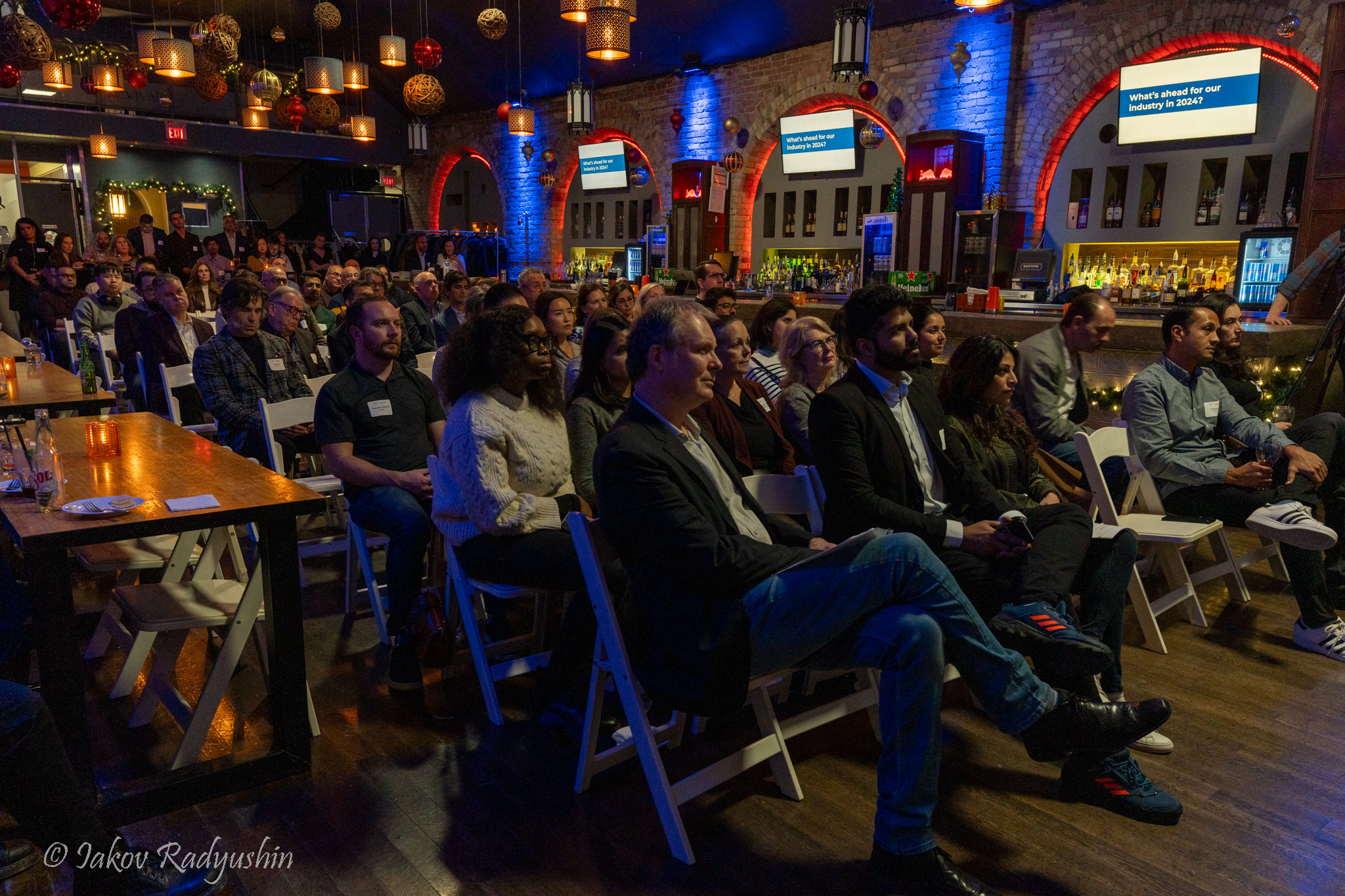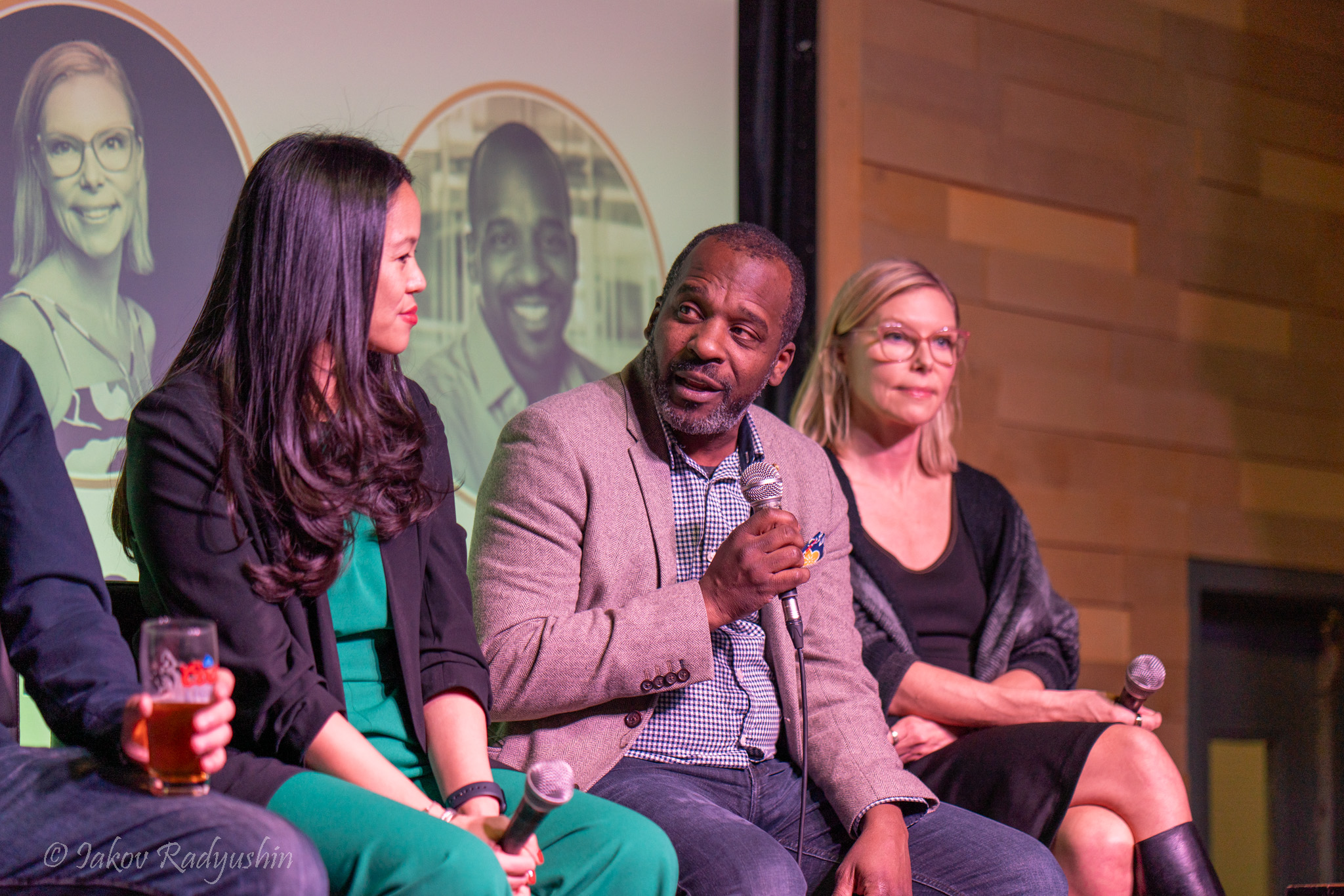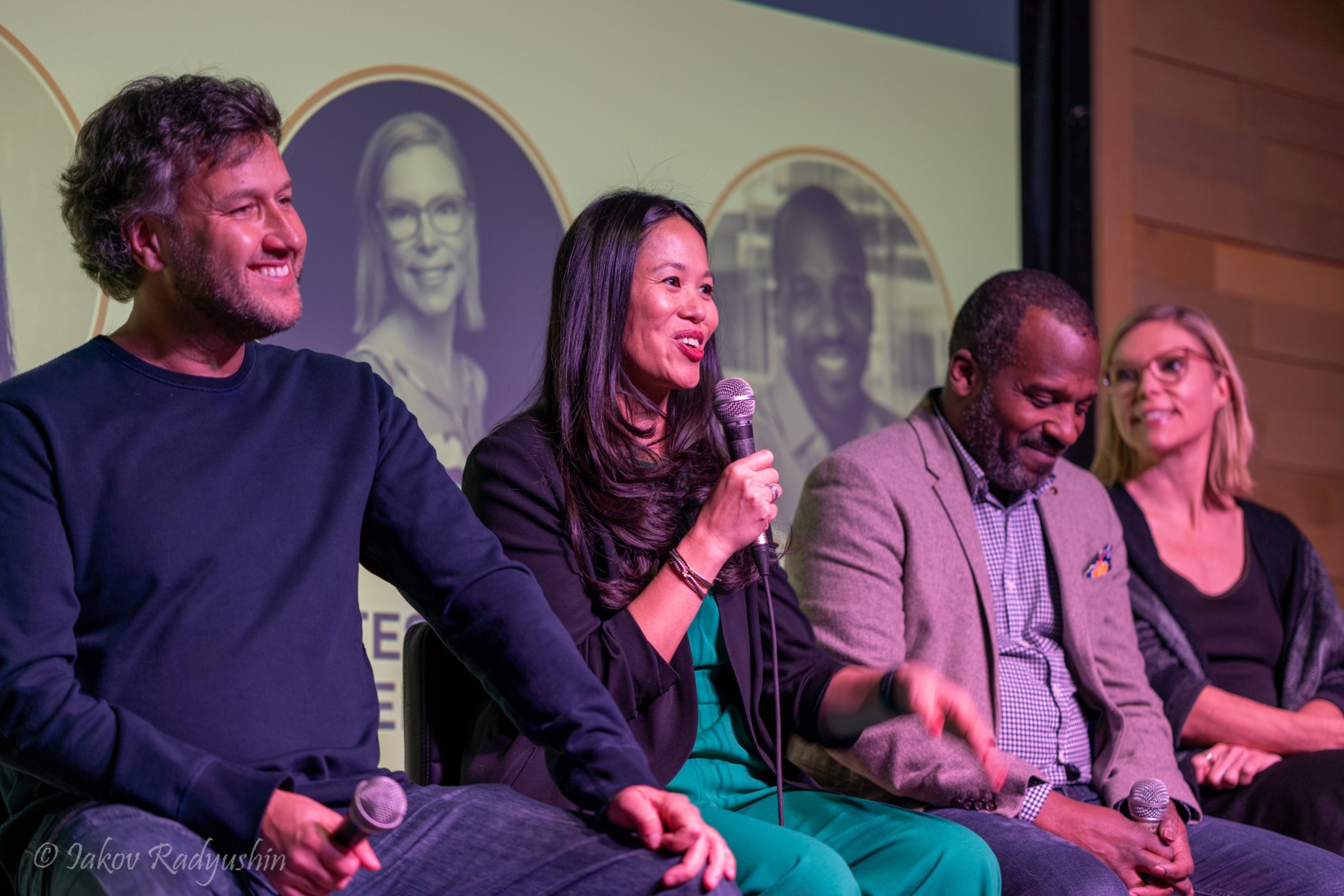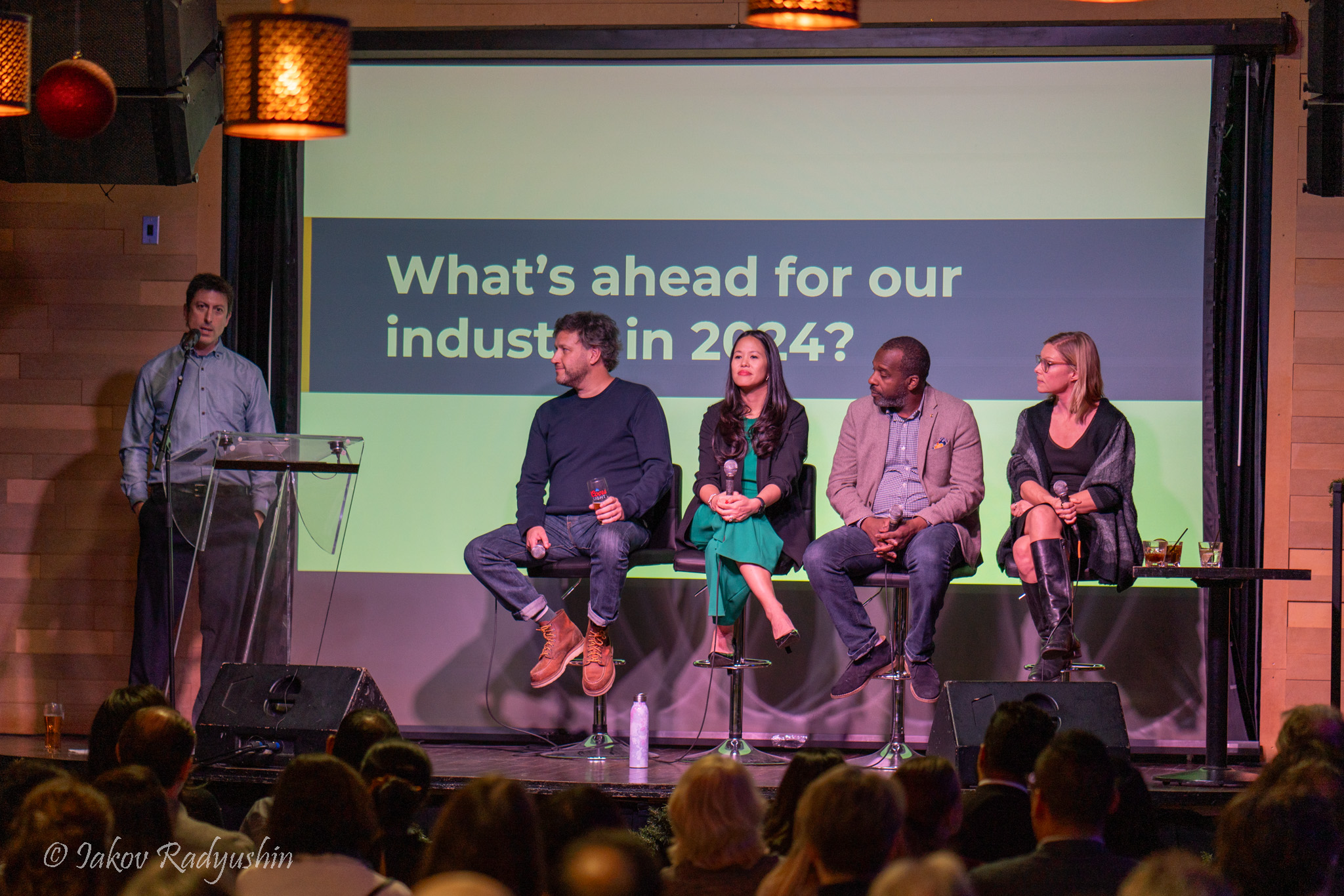Seven unmissable takeaways from AMA Toronto’s annual Agency Panel
The American Marketing Association (AMA) recently hosted its 8th annual Agency Panel in Toronto. The event brought together progressive marketers from the Canadian agency sector to discuss emerging and ongoing trends, as well as the challenges and opportunities facing the industry in 2024.
Moderated by Sean Stanleigh, Head of Globe Content Studio at The Globe and Mail, this year’s discussion featured a stellar lineup, including Richard Ivey, Chief Client Officer at Media Experts; Sue Jackman, Senior Vice President, Marketing at Citizen Relations; Tessa Ohlendorf, Managing Director at Media.Monks; and Aaron Starkman, Global Chief Creative Officer at Rethink.
“The Agency panel event serves as an essential year-end gathering for Toronto’s marketing community,” says Stanleigh. “The candid discussion delivered valuable insights around challenges and opportunities from the past year, and a glimpse of what’s ahead for the industry in 2024.”

Here are seven unmissable takeaways from the discussion:
1. Agencies and clients should be prepared for potential shifts in 2024
In a landscape influenced by inflation and financial uncertainty, agencies and clients must develop more resilience and adaptability to navigate the economic terrain successfully. “Agencies landing a new client can’t afford a bumpy start,” states Aaron Starkman. He believes establishing a solid foundation for successful partnerships involves embracing “radical candour” — being transparent and effective in communication.
Aaron’s reflective question, “Why have we never just said the thing?’” inspired Rethink’s new process called the “Relationship Accelerator.” This innovative, one-day consultation aims to improve agency-client relationships by encouraging honest conversations, transparency, and a commitment to addressing concerns directly. The effectiveness of this approach for Rethink is evident. Proudly Canadian and now one of the largest global independent agencies, Rethink is attracting and retaining more clients, while indisputably creating some of the world’s most memorable, effective and award-winning work. Rethink is Canada’s most internationally acclaimed creative agency and was just named Strategy’s Agency of the Year and Design Agency of the Year, for the 5th consecutive year.
2. Agencies need to evolve into indispensable business partners
The fast-paced world of communication has always required agencies to be flexible and responsive in the face of constant change. Today, adaptability and responsiveness are crucial when addressing emerging challenges and providing advice to clients. Sue Jackman, who recently helped lead Citizen Relations to win Strategy’s PR Agency of the Year award, said, “We’re moving moment to moment and week to week, and our agency needs to be designed to be nimble and responsive in that moment.”
The challenges presented by the industry’s rapid and accelerating pace are manifold, encompassing issues such as cutting through the clutter, managing privacy concerns, and adapting to shifting customer behaviour. The perpetual nature of these challenges requires agencies to not only address issues immediately but also to anticipate and navigate future obstacles proactively.
3. Clients must understand the value of long-term projects
At Media Experts, a leading Canadian media agency, Richard Ivey believes that educating and guiding clients is essential, stressing the importance of maintaining equilibrium between short-term objectives, like immediate sales, and the enduring impact of long-term brand development. “Our job is to strike a balance,” he highlighted, acknowledging that while clients may prioritize selling something today, agencies must ensure the protection of their interests for the future.
An exceptional negotiator with over 30 years of experience in cross-platform media buying and strategic planning, Richard’s talent in bringing innovative and custom-designed strategic direction to Media Experts’ clients has been finely tuned over his career.
His perspective underscores the agency’s pivotal role in addressing immediate needs and fostering a strategic partnership that aligns both short-term and long-term goals for sustained success. It emphasizes the importance of client education for a holistic and forward-thinking approach to marketing strategies.

4. AI can act as a powerful tool in the creative process
The seamless integration of technology into advertising practices emerged as a transformative trend during the discussion. Beyond just a tool, technology, especially AI, has become an integral part of the creative and strategic processes, “If you can’t get people looking at the work, use the robots,” said Aaron Starkman, sharing Rethink’s surprising use of AI, specifically Chat GPT, in its creative peer-review process.
While skepticism lingers about AI’s capacity to generate truly innovative content, Aaron pointed out its valuable role in specific creative processes, especially in generating initial concepts and quickly helping with assessing work during peer review.
Tessa Ohlendorf from Media.Monks, which was just named Adweeks’ inaugural AI Agency of the Year, reinforced this viewpoint. She elaborated on the potential of AI to accelerate creative tasks, enabling faster and more efficient operations, making it a major driving force in the industry’s growth in 2024.
5. Prioritize mental health for enhanced workplace connection
Discussing the emerging post-pandemic workplace, Sue Jackman raised the fact that the World Health Organization (WHO) as well as the U.S. surgeon general recently declared loneliness to be a new public health threat. Framing the issue of the “loneliness epidemic,” Sue urged agencies and companies to redefine their approach in creating office environments to better foster genuine connection and address this mental health issue.
“In our ever-evolving workplace, mental health is not only a concern but also a cornerstone for developing connections and resilience. Addressing the loneliness epidemic requires purposeful efforts that transcend traditional barriers and create meaningful moments, both online and offline,” she added.
Sue also emphasized that workplace mental health is not just about personal well-being, but also a practical strategy for building strong, authentic work relationships in the face of evolving work dynamics. “The workplace of the future is one where intentional breaks and communal moments align with the needs of our teams, creating a supportive environment that genuinely connects,” she added, passionately advocating for making the fight against this epidemic a top priority.

6. A four-day workweek can enhance performance and employee satisfaction
Highlighting the potential for shifting business culture and workplace strategies, Tessa Ohlendorf shared how her company, Media.Monks, a digital-first marketing, advertising and technology services company, has been able to leverage technology to adopt a four-day workweek.
“The four-day workweek is about working smarter, not just fewer days,” Tessa asserted.
Describing it as a pivotal moment, Tessa explained that with the help of data and a good understanding of employee engagement, Media.Monks was able to show how this strategic move improved performance and employee satisfaction.
Her radically progressive workplace flexibility proves a reimagined work week can drive increases in revenue, growth, retention and desirability as an employer, in addition to combating gender inequality and better supporting women in the workplace. Underlining the effectiveness of the four-day work week at the agency, Media.Monks under Tessa’s direction won two 2023 “Best Workplace” awards by Great Place to Work (Best Workplace for Women, and Best Workplace Managed by Women).
As the hybrid workplace continues to evolve, it’s clear that this innovation is something to watch for in 2024.
7. Support local media and journalism
Journalism plays a vital role in communicating government actions and their consequences to diverse populations. Richard Ivey highlighted that the decline of media intensifies information gaps, especially for diverse and marginalized communities, and urged brands to support local journalism.
“When journalism declines, diverse populations are the first to suffer.”
To tackle this challenge, advertisers and brands need to support local media actively. The focus should be on directing funds into journalism, rather than contributing to the profits of multinational corporations, to create a robust support system tailored for Canadian journalists. This system should prioritize hiring journalists with the skills to cover topics that matter to Canadians, locally, nationally, and within diverse communities.

A big thank you to the Presenting Sponsor Balmoral Multicultural Marketing, as well as Event Sponsor Silver Leaf Solutions, and our partners Globe Media Group, Score Promotions, Balzac’s Coffee Ltd, AV-CANADA and Finally Remote Accounting Teams.
About AMA Toronto
The Toronto Chapter of the American Marketing Association (AMA Toronto) is a community of volunteer marketers who have been empowering leadership and business growth for more than 70 years in Canada. The AMA, with more than 30,000 members and 70 chapters across North America, is the largest not-for-profit marketing association in the world serving organizations and individuals who practice, teach and study marketing.
About the Author
Zeel Gandhi is a seasoned brand communications and public relations professional currently working as a Communications Specialist at Definity Financial while actively contributing as a public relations director at AMA Toronto.
Photos
Event photos by AMA Toronto photographer, Yakov Radyushin.




